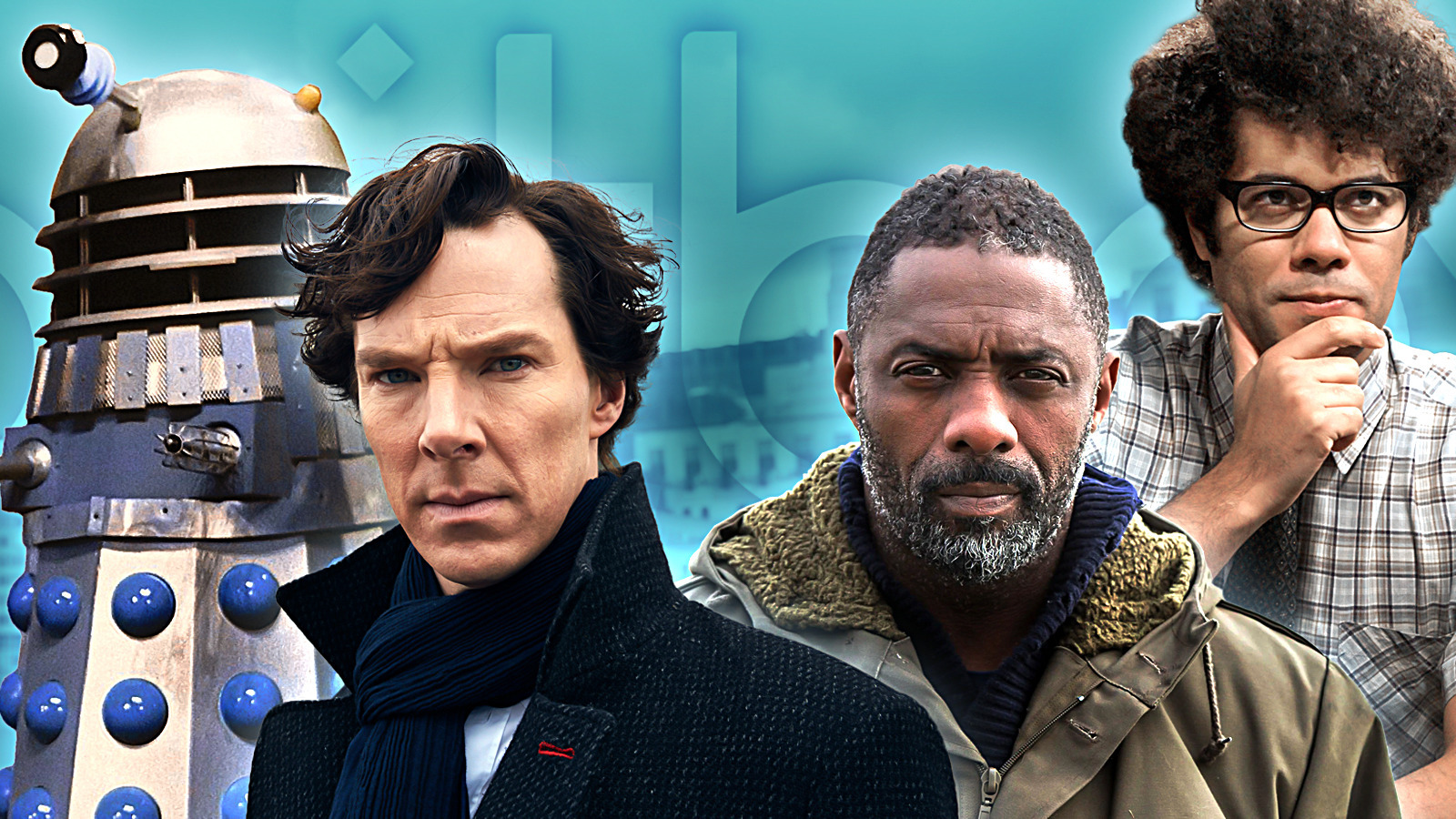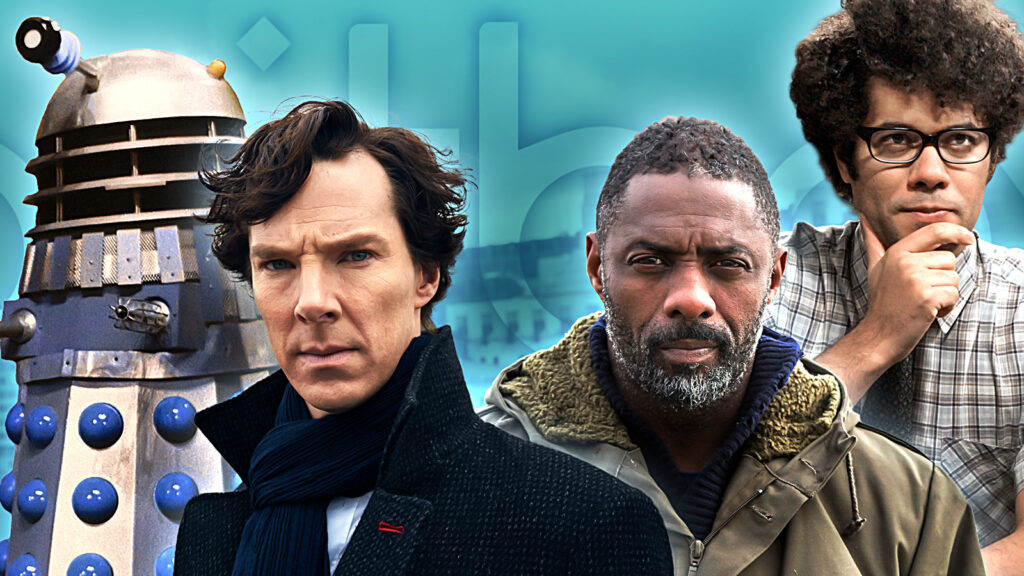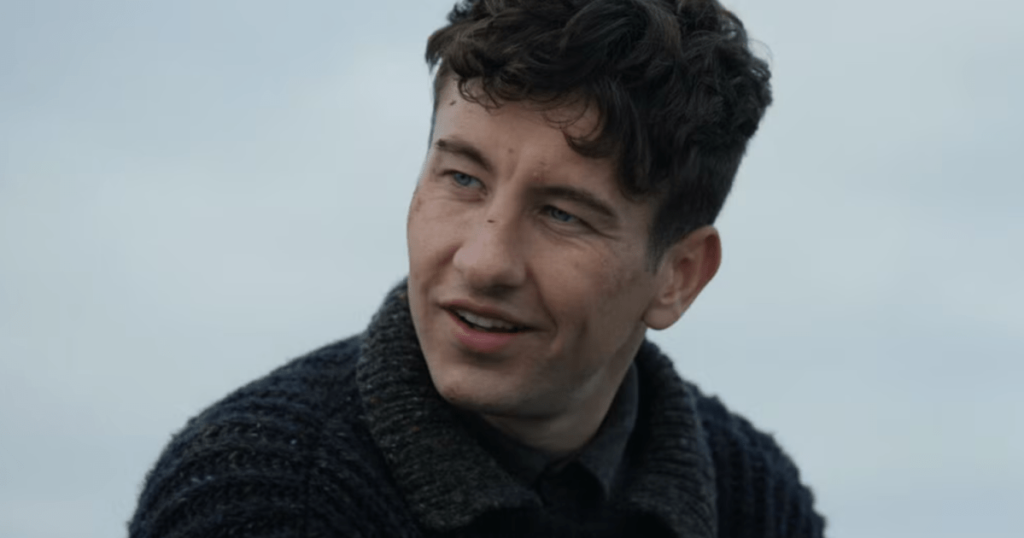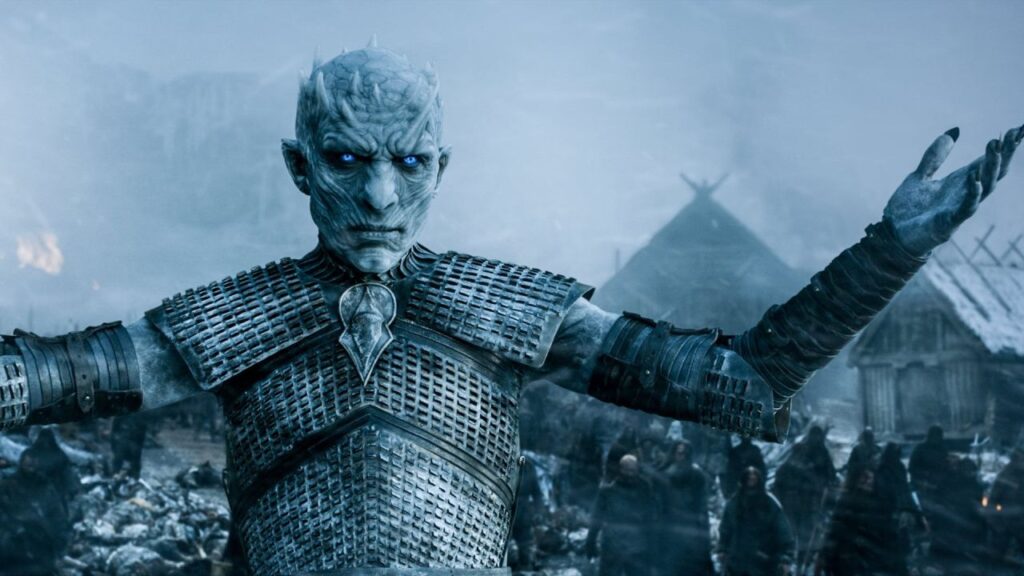
The BBC and ITV teamed up to launch the streaming service BritBox, with an extensive library of British television programming. BritBox is an absolute must-subscribe for any fan of British TV, with a catalog spanning numerous decades and genres. For those unfamiliar with television projects coming out of the United Kingdom, BritBox serves as a welcome introduction to plenty of prestige TV from Great Britain. Simply put, any anglophile or TV buff should look into subscribing to BritBox for its incredible breadth of television content.
With everything from intense crime thrillers to nonsensical period piece comedies, there is something for everybody on BritBox. For the North American market, BritBox is the only streaming service to carry some timeless television favorites. And with a library of series that expansive, it can be daunting to figure out which shows to check out first.
With that in mind, here are the 12 best TV shows on BritBox that you should give a watch.
Blue Lights
Northern Ireland remains a part of the United Kingdom that is seldom represented in British television and film projects. Fortunately, the hit crime procedural “Blue Lights,” which premiered in 2023, sheds an overdue light on Belfast and its surrounding areas. The show follows three new police officers as they investigate everything from organized crime to random violent incidents throughout Northern Ireland. This includes everything from ongoing sectarian tension between the Irish and British to local mobsters and the rise of drug trafficking in the country.
Intensely plotted and staged, “Blue Lights” is one of the best crime shows to come out of the United Kingdom in years. The show takes full advantage of its Northern Irish setting,$ and its three lead actors engagingly anchor the narrative.”Blue Lights” is a procedural that doesn’t feel formulaic or watered-down, instead leaning into the grim possibilities of its premise. Ultimately, “Blue Lights” breathes fresh life into the well-worn crime genre, smartly written and performed.
Blackadder
Before he was slapstick icon Mr. Bean (who originally didn’t have a name), comedian Rowan Atkinson endeared himself to British audiences with the historical comedy “Blackadder.” Each season of “Blackadder” is a self-contained story following different generations of the Blackadder family at pivotal moments of English history. As Blackadder (Atkinson) connives new ways to gain power and influence, his plans are often spoiled by his incompetent servant Baldrick (Tony Robinson). The target of Blackadder’s schemes are usually dim-witted monarchs or social superiors, further adding insult to injury for the pretentious protagonist.
“Blackadder” is one of those shows that gets better with every subsequent season, particularly after it gains cast members Stephen Fry and Hugh Laurie. The cruelly calculating character of Blackadder is a far cry from silently pleasant Mr. Bean, showing a fresh side to Atkinson’s comedic chops. By the second season, the series had really found its stride and tone, especially the interplay between Atkinson and Robinson. As effective now as it was in the ’80s when it originally ran, “Blackadder” is British comedy royalty.
Being Human (2008 – 2013)
There’s just something funny about putting conventional horror monsters together and watching them try to live together in some semblance of domestic normalcy. This sensibility forms the core premise of the horror dramedy “Being Human,” which ran for five seasons from 2008 to 2013. Primarily set in the English city of Bristol, “Being Human” has a werewolf, vampire, and ghost split a home together. Despite their best efforts to conceal their monstrous natures, the trio has to deal with other supernatural elements as they try to blend in with humanity.
“Being Human” is, at once, a comedy about the trials and tribulations of living with vastly different roommates and a drama about facing one’s inner demons. Powered by its magnetic core cast, particularly Russell Tovey and Aidan Turner, “Being Human” becomes more engrossing as it progresses. The tortured character arcs of its leads, while often played for laughs, are also genuinely emotionally stirring, speaking to the humanity of its monsters. Inspiring a spinoff and an American remake, the original “Being Human” still remains the best story that franchise has told yet with its genre monster mash.
Sherlock
After reinventing another British literary icon with their limited series “Jekyll,” the creative team of Mark Gatiss and Steven Moffat turned their attention to Sir Arthur Conan Doyle’s Sherlock Holmes. Launching in 2010, “Sherlock” reimagined the classic detective and his loyal companion John Watson as consulting crime-solvers in present-day London. The core duo of Holmes and Watson was played by Benedict Cumberbatch and Martin Freeman, respectively, tackling a different mystery each episode. Adding to the cinematic scope of the show, each episode of “Sherlock” runs for approximately 90 minutes, with each season containing three episodes.
“Sherlock” made worldwide stars of Cumberbatch and Freeman, and rightfully so, particularly with Cumberbatch’s darkly obsessive portrayal of Holmes. The show also pits the pair against a number of cunning and calculating adversaries, though none as memorably twisted as Andrew Scott’s Jim Moriarty. Reflecting its setting, “Sherlock” presents a nuanced depiction of the detective, incorporating modern technology and not without his fair share of inner demons to combat. As thrilling as it is stylized, “Sherlock” breathes new life into the venerable literary figure by updating his most timeless stories for modern audiences.
The IT Crowd
If workplace comedies like “The Office” depict a relatively grounded white collar grind with naturalistic humor, “The IT Crowd” deliberately goes over-the-top. Set within the tech support office of a London corporation, “The IT Crowd” ran for four seasons from 2006 to 2010, with a concluding special released in 2013. The office’s four technicians share a dingy, cramped basement office and generally slack off between receiving mundane support calls. Heading the company is the eccentric Douglas Reynholm (Matt Berry) who often gets embroiled in the IT office’s latest misadventures.
Long before Noel Fielding co-hosted “The Great British Baking Show” and Berry starred in “What We Do in the Shadows,” they unveiled their comedic chops in “The IT Crowd.” The show goes for broader laughs, relying significantly less on the cringe humor utilized by many British sitcoms. The core trio of Chris O’Dowd, Richard Ayoade, and Katherine Parkinson each bring different comical sensibilities to their performances, complementing each other perfectly. While American and German versions to adapt the show proved lacking, the original “IT Crowd” remains one of Britain’s funniest sitcoms.
The Thick of It
As far as contemporary political satire on television goes, no one writes sharper or more wickedly funny than Armando Iannucci, particularly in his series “The Thick of It.” The show takes place in the fictional Department of Social Affairs and Citizenship, which works closely with many departments and ministries within the British government. As the new department struggles under incompetent leadership, it is meticulously and abrasively managed by Malcom Tucker (Peter Capaldi), working on behalf of the Prime Minister. “The Thick of It” ran for four seasons and two TV specials from 2005 to 2012, along with a 2009 feature film spinoff, “In the Loop.”
Just as Iannucci effectively skewers American politics with his later show “Veep,” he takes no prisoners satirizing the British government with “The Thick of It.” Capaldi is the breakout star as Malcom Tucker, whose foul-mouthed, politically incorrect tirades are consistently scene-stealers. As ridiculous as some of the premises may seem at times, truth has since proven stranger than fiction, with “The Thick of It” mirroring real-life political events with surprising accuracy. For all the profanity-laced satire, “The Thick of It” just stands as an enormously funny and entertaining show, regardless of political context.
Chewing Gum
After successfully writing and starring in her 2012 play “Chewing Gum Dreams,” writer and actor Michaela Cole adapted it for television with the sitcom “Chewing Gum.” Running for two seasons from 2015 to 2017, the show has Cole play a young woman named Tracey Gordon, who grew up in a repressively religious family. Wanting to avoid following her older sister Cynthia’s chaste example, Tracey vows to lose her virginity as she progresses into her 20s. This drive places a deep strain on Tracey’s relationship with her family, as she experiences the awkwardness of serious romance for the first time.
As with her one-woman play, Cole is a tour-de-force throughout “Chewing Gum,” both as its protagonist and principal screenwriter. Deeply insightful, “Chewing Gum” also displays Cole’s mastery of comedic timing and the subtle complexity of physical comedy. For all its laughs, there is a genuinely earnest heart at the core of “Chewing Gum,” not just personified by Cole but the show’s main ensemble cast. A richly star-making turn for Cole, “Chewing Gum” is one of the best modern sitcoms to come from Britain in the past several years.
Classic Doctor Who
Before “Star Trek” and “Lost in Space,” there was “Doctor Who,” which premiered on the BBC in 1963. The series initial broadcast run, from 1963 to 1989, is included on BritBox, while its revival seasons are available on streaming services in North America. The show follows an extraterrestrial Time Lord, who simply is referred to as “the Doctor,” exploring space and time. As different iterations of the Doctor regenerate over time, he faces terrifying threats often menacing the Earth and his friends.
“Doctor Who” is the epitome of sci-fi camp, with budget-friendly creature designs and visual effects, but with genuinely gripping stories and memorable characters. With its original run spanning over 25 years, “Doctor Who” successfully reinvented itself more times than it recast its lead actor. Even with its cheaper production values, there are some episodes of “Doctor Who” that remain legitimately frightening decades after their first broadcast. To see where the expansive British sci-fi saga all began, check the classic “Doctor Who” and the foundations for the enduring franchise.
The Fall
Prior to “Blue Lights” and “Derry Girls,” the biggest British show to be set in Northern Ireland was “The Fall,” which ran for three seasons from 2013 to 2016. A procedural thriller in the tradition of “The Silence of the Lambs,” “The Fall” has a police superintendent Stella Gibson (Gillian Anderson) search Belfast for a cunning serial killer. This devious figure, Paul Spector (Jamie Dornan), manages to stay one step ahead while Gibson’s team encounters all manner of obstacles, both internal and external, in their investigation. “The Fall” is divided between Gibson and Spector’s perspectives, fueling the tense cat-and-mouse game at the heart of the story.
Given its premise and one of its lead characters, “The Fall” is as dark and twisted as British crime shows can get. Dornan is deliciously evil in his performance as Spector, a master of manipulation who knows how to avoid the law while he zeroes in on new targets. He’s matched by Anderson’s steely-eyed performance as Gibson, unwavering in her hunt for the fugitive murderer. Chilling and impossible to escape its grip once you start watching, “The Fall” is a bloody thrill ride from start to finish.
Downton Abbey
While period piece dramas have long made up the backbone of British television programming, one show that catapulted the genre into the global spotlight was “Downton Abbey.” Running for six seasons from 2010 to 2015, “Downton Abbey” has maintained its popularity, leading to the release of two continuation films, the most recent in 2022. The show follows the aristocratic Crawley family in the early 20th century amid upheaval in the British social hierarchy. The Crawleys’ lives are juxtaposed with the rise of the working class, including the family’s servants.
With a thorough attention to detail and authenticity, “Downton Abbey” faithfully recreates its period piece setting and organically weaves in major historical events. What elevates the show and its story is the extensive and talented supporting cast, with even characters in the upper social strata maintaining a level of inherent likability. The late Maggie Smith delivers a funny and wry performance as the matriarchal Violet Crawley while the show made an international star of Dan Stevens. A period piece without the stuffiness and pretension the genre is known for, “Downton Abbey” deserves every inch of praise it’s received.
The Office
The show that effectively made stars out of creators Ricky Gervais and Stephen Merchant, the original version of “The Office” from the UK ran for two seasons and a Christmas special from 2001 to 2003. The series is presented as a mockumentary, complete with talking head interviews, examining employees working at a British paper company. Inept manager David Brent (Gervais) tries to impress his staff with awkward attempts at humor while his salesman Tim (Martin Freeman) pines for the office’s receptionist Dawn (Lucy Davis). Joining David is his sycophantic right-hand man Gareth (Mackenzie Crook), whose vindictive nature makes him a frequent target of Tim’s pranks.
Following the enormously successful American adaptation, it’s easy to forget how wickedly funny and distinctly different the British version of “The Office” is. David Brent and Gareth are considerably less likable than their American counterparts, by design, while the overall sense of humor is deliberately cringier. Whereas the American show perhaps overstayed its welcome by a season or two, the British “Office” knew exactly when to quit while it was still on top. With new international versions of the premise in development over 20 years after the original ended, “The Office” remains as culturally relevant as ever.
Luther
After his memorable main cast role in the first three seasons of “The Wire,” actor Idris Elba returned to his native Britain for a different crime thriller with “Luther.” The show follows London police inspector John Luther (Elba) as he investigates various violent crimes occurring around the city. Over the course of the series, Luther forms an odd connection with quirky murderer Alice Morgan (Ruth Wilson) who helps him stop vicious serial killers on the loose. Running for five seasons from 2009 to 2019, “Luther” was followed by a continuation film “Luther: The Fallen Sun” in 2023.
If “Sherlock” captures the excitement and intrigue possible in London after dark, “Luther” illustrates just how dark and twisted each shadow in the city can be. There are enemies and episodes of “Luther” that feel more tonally similar to a horror show rather than a police procedural. Through it all, Elba’s steely magnetic performance as Luther and creator Neil Cross’ writing keeps the quality consistent over the course of the show’s run. Masterfully paced and terrifyingly gripping, “Luther” is a tour-de-force for Elba and a standout from his extensive career.


